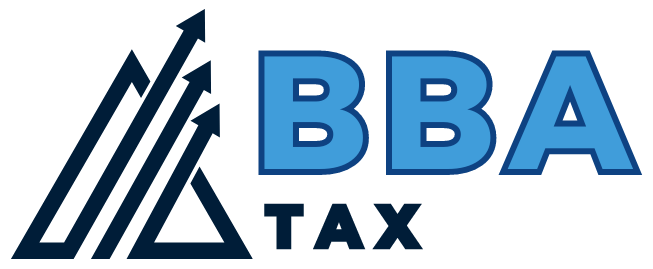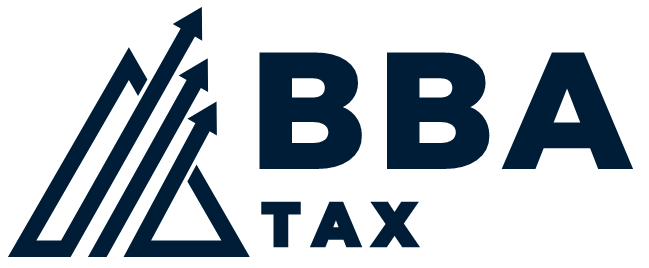As a small business owner in Canada, one of the most important decisions you’ll make is how to pay yourself. Whether you’re operating as a sole proprietor, a partnership, or a corporation, understanding how compensation works not only impacts your personal finances but also your tax obligations and potential audit risk with the Canada Revenue Agency (CRA).
At BBA Tax, a trusted accounting firm in Ottawa, we specialize in helping small business owners navigate the complexities of tax filing, bookkeeping, incorporation, CRA audits, and financial management. In this blog, we provide a comprehensive guide on how to pay yourself legally and effectively, how to avoid CRA red flags, and how to manage your taxes smartly.
Table of Contents
- Understanding Your Business Structure
- Options for Paying Yourself
- Paying Yourself from a Sole Proprietorship or Partnership
- Paying Yourself from a Corporation
- Dividends vs Salary: Which is Better?
- How CRA Audits Are Initiated
- Best Practices to Avoid CRA Audits
- Tax Filing and Payment Tips for Small Business Owners
- How BBA Tax Can Help You
- Final Thoughts
1. Understanding Your Business Structure
Before you can determine how to pay yourself, you must understand your business structure:
- Sole Proprietorship: You and your business are the same legal entity.
- Partnership: Two or more individuals share ownership.
- Corporation: A separate legal entity from its owner(s).
Each type comes with different legal and tax implications, which directly influence how and when you can compensate yourself.
2. Options for Paying Yourself
There are typically three ways to pay yourself in Canada, depending on your business structure:
- Owner’s Draw (for Sole Proprietors/Partnerships)
- Salary (for Incorporated Businesses)
- Dividends (for Incorporated Businesses)
Let’s break down each method.
3. Paying Yourself from a Sole Proprietorship or Partnership

In a sole proprietorship or partnership, you are not considered an employee. You can’t pay yourself a salary. Instead, you take what’s called an owner’s draw from the profits.
How It Works:
- All business income and expenses are reported on your personal tax return using T2125: Statement of Business or Professional Activities.
- After expenses, the remaining profit is considered your income.
- You can draw money from the business bank account at any time, but it doesn’t affect your taxable income.
Tax Filing:
- Your tax liability is calculated based on your net business income.
- You pay both income tax and Canada Pension Plan (CPP) contributions.
Pros:
- Simpler to manage
- Fewer administrative tasks
Cons:
- You are personally liable for all business debts.
- You pay taxes on all profits, regardless of how much you withdraw.
4. Paying Yourself from a Corporation
Corporations are separate legal entities, which allows for more tax planning opportunities and greater protection. You can pay yourself via:
Option 1: Salary
- You are considered an employee of the corporation.
- The corporation must register for a payroll account with CRA.
- Regular payroll deductions must be made (CPP, EI if applicable, income tax).
Pros:
- You can contribute to RRSPs based on earned income.
- Creates contribution room for CPP and EI.
- Reduces corporate taxable income.
Cons:
- Requires more administrative work.
- Subject to payroll remittance deadlines.
Option 2: Dividends
- Paid out from after-tax corporate profits.
- Not considered earned income (no CPP or RRSP contribution room).
- Paid out via T5 slips and reported on your personal tax return.
Pros:
- Simpler than payroll.
- Can be more tax efficient.
Cons:
- Doesn’t build CPP or RRSP room.
- Higher personal tax rate in some provinces if overused.
5. Dividends vs Salary: Which is Better?
There is no one-size-fits-all answer. The best method often includes a combination of both salary and dividends.
| Criteria | Salary | Dividends |
|---|---|---|
| CPP Contributions | Yes | No |
| RRSP Eligibility | Yes | No |
| Personal Income Tax | Withheld | Paid later |
| Corporate Tax Deductible | Yes | No |
| Administration | More | Less |
A qualified Ottawa tax accountant from BBA Tax can help you determine the ideal blend based on your income level, retirement goals, and lifestyle needs.
6. How CRA Audits Are Initiated

A CRA audit can be stressful, but understanding how and why audits happen can help you reduce your risk.
Common Triggers for CRA Audits:
- Unusual Deductions: Large business expense claims compared to income.
- Repeated Losses: Continuous loss reporting can look suspicious.
- Industry Benchmarks: Your numbers are far off from industry norms.
- Mixing Personal and Business Finances.
- Home Office or Vehicle Deductions: These are highly scrutinized.
- Discrepancies in Reported Income: Between GST/HST, T4s, T5s, and T2125 forms.
- CRA Tips and Complaints: The CRA also acts on third-party information.
Types of CRA Audits:
- Desk Audit: Conducted by mail.
- Field Audit: On-site review at your office or home.
What the CRA Will Review:
- Bank statements
- Receipts and invoices
- Payroll records
- GST/HST filings
- Contracts and agreements
- Expense reports
7. Best Practices to Avoid CRA Audits
- Hire a Professional Accountant in Ottawa: Partnering with BBA Tax ensures your books are clean and compliant.
- Keep Detailed Records: Store receipts, invoices, and logs for at least 6 years.
- Separate Business and Personal Finances: Always use a separate business bank account and credit card.
- Avoid Aggressive Deductions: Especially for meals, travel, and vehicles.
- File Taxes Accurately and On Time: Late or incorrect filings can trigger reviews.
- Respond Promptly to CRA Requests.
- Stay Informed: Tax laws change—keep up or consult an expert.
8. Tax Filing and Payment Tips for Small Business Owners

Whether incorporated or not, here are essential tax tips:
For Sole Proprietors:
- File your T1 personal return by June 15, but pay any balance by April 30.
- Use Form T2125.
For Corporations:
- File your T2 corporate return within 6 months of your fiscal year-end.
- Installments may be required based on previous taxes owed.
General Tips:
- Consider installment payments to avoid interest and penalties.
- Use QuickBooks or Wave for bookkeeping.
- Take advantage of small business deductions, such as:
- Home office expenses
- Capital Cost Allowance (CCA)
- Business-use-of-vehicle
- Professional services fees
9. How BBA Tax Can Help You
BBA Tax is an experienced Ottawa accounting firm that provides small business owners with full financial support, including:
- Bookkeeping: Organized, accurate records to back your filings.
- Corporate Taxes: Strategic planning and tax-saving advice.
- Personal Tax Filing: Integrated personal and business tax services.
- CRA Audit Defense: We communicate directly with the CRA on your behalf.
- Business Incorporation: Structure your business for tax efficiency.
As a trusted Ottawa accountant, we’re here to take the guesswork out of your taxes and finances.
10. Final Thoughts
Knowing how to pay yourself as a small business owner in Canada is more than a technicality—it’s about smart financial planning, tax efficiency, and compliance.
Whether you’re just starting out or looking to optimize your current approach, a personalized strategy is essential.
Avoid costly mistakes and CRA audits by working with a certified tax accountant in Ottawa like BBA Tax. Let our experts help you navigate every aspect of your finances—from incorporation to payroll, from tax filing to audit defense.
Ready to get your books in order and plan your compensation the smart way?
Contact BBA Tax today for a free consultation and take the first step toward financial peace of mind.



